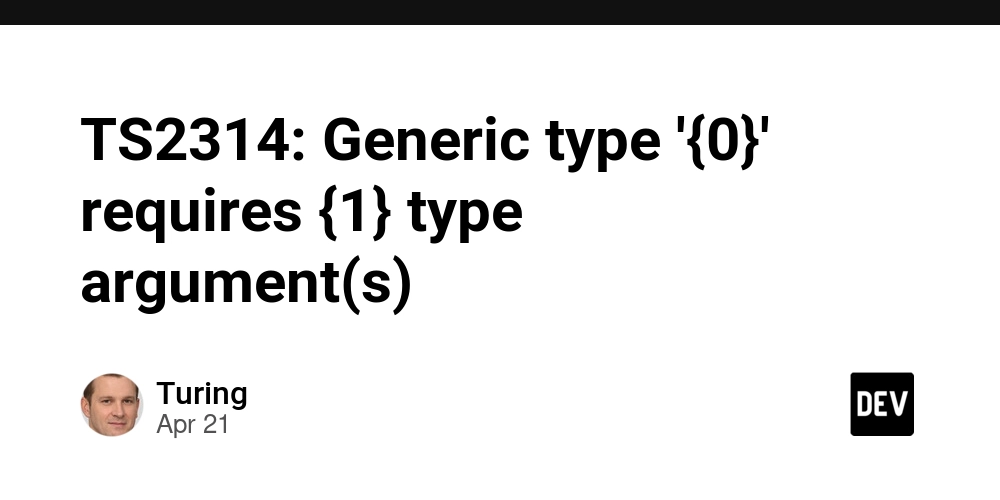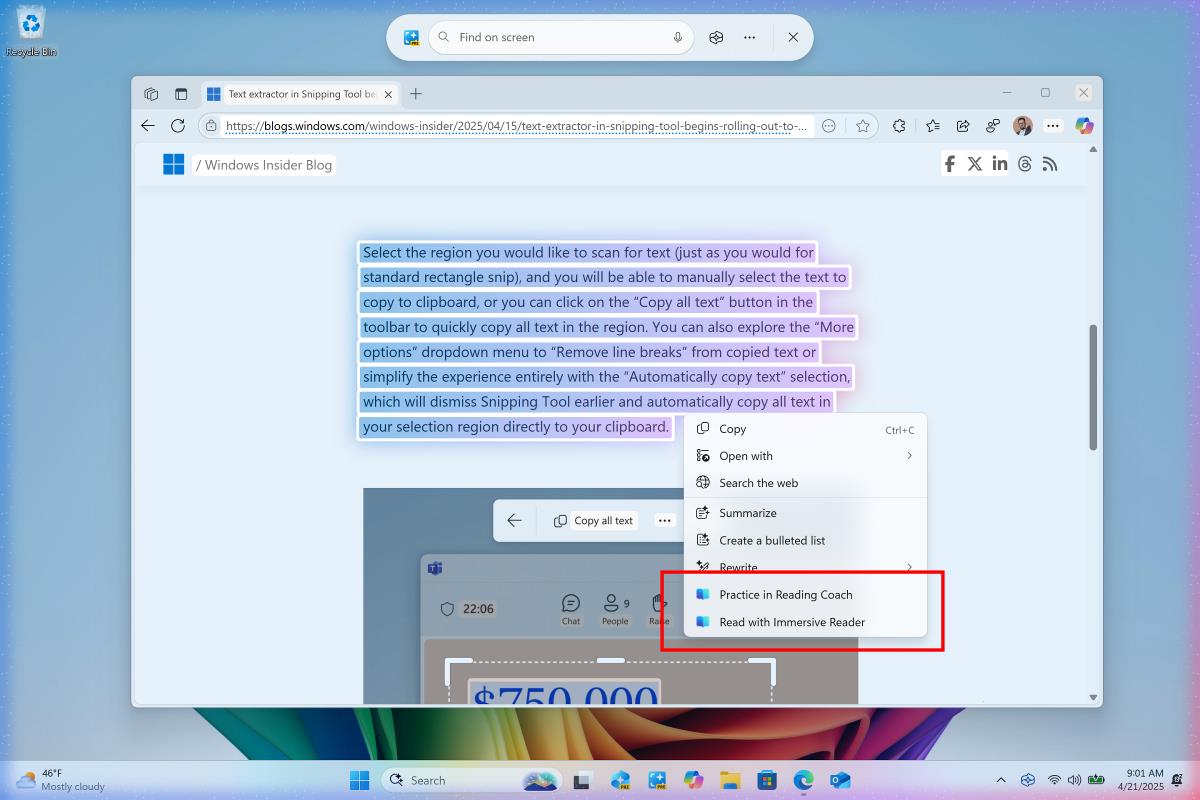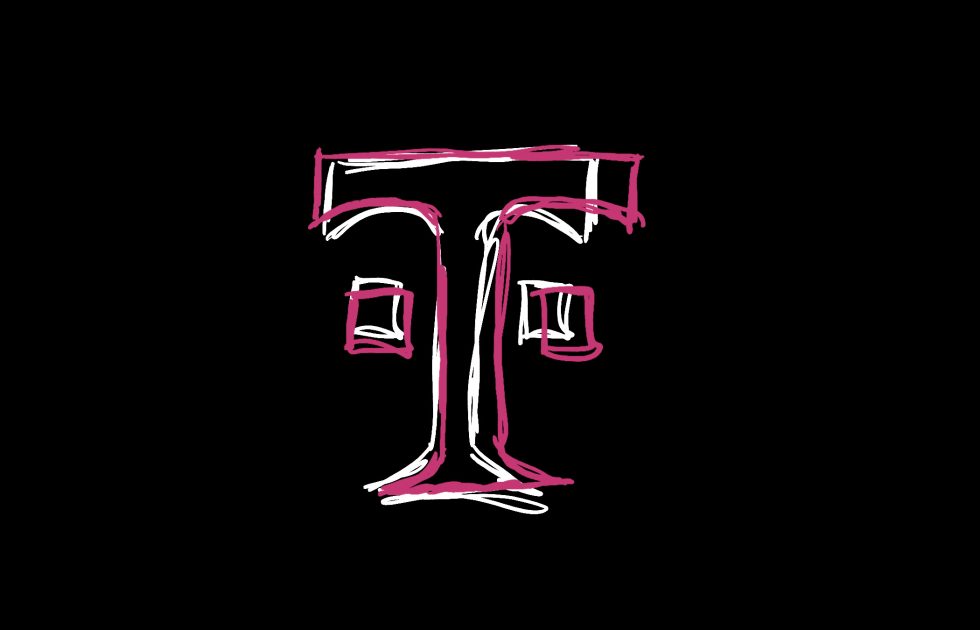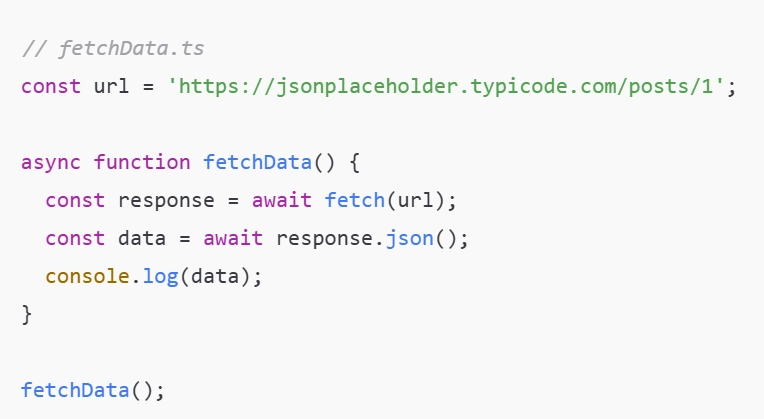TS2314: Generic type '{0}' requires {1} type argument(s)
TS2314: Generic type '{0}' requires {1} type argument(s) TypeScript is a superset of JavaScript designed to add type safety and improve development workflows. In simple terms, TypeScript allows developers to define and enforce the types (the shape and structure of data, such as number, string, boolean, or custom-defined shapes) in their code, reducing runtime errors by catching issues at compile time. If you're new to TypeScript or want to enhance your coding skills using modern tools, consider subscribing to our blog or using AI-based tools like gpteach.us to accelerate your learning and problem-solving journey. One of the cornerstones of TypeScript is its type system, which provides robust tools to help define and work with types. Here, let’s spend a moment discussing types, one of the foundational topics in TypeScript. What are Types in TypeScript? In programming, types define the kind of data a value can have. For example: string: Represents textual data. number: Represents both integers and floating-point numbers. boolean: Either true or false. object: Represents objects with specific keys and values. Array: A collection of elements of a specific type. In TypeScript, these types ensure that the variables, function parameters, and return values behave as expected. Custom types can also be defined using interfaces, type aliases, generics, and enums. Here’s a quick example of utilizing types: // Defining types for a function parameter and return type function addNumbers(a: number, b: number): number { return a + b; } const result = addNumbers(4, 5); // Works fine! const invalidResult = addNumbers(4, "5"); // Error: Argument of type 'string' is not assignable to parameter of type 'number'. Notice how TypeScript catches type-related issues early, preventing runtime bugs! Now that you have a basic understanding of types, let’s focus on the error message TS2314: Generic type '{0}' requires {1} type argument(s) — a common error encountered when working with generics. Understanding TS2314: Generic type '{0}' requires {1} type argument(s) The error TS2314: Generic type '{0}' requires {1} type argument(s) typically occurs when you use a generic type without providing the necessary type arguments (parameters). Generics in TypeScript enable you to write reusable code by allowing types to be passed as parameters, making functions, classes, and other types more flexible and type-safe. Here’s a simple explanation of what generics are: What are Generics? Generics allow you to define constructs (like classes, functions, or interfaces) parameterized by a type. For example, a generic function can accept and return specific types while still being reusable for different types. // Generic function function identity(value: T): T { return value; } const num = identity(42); // T is inferred as number const str = identity("Hello"); // T is inferred as string In the above example, T is a type parameter. When using the identity function, you explicitly specify a type (like number or string), which replaces T. Common Cause of TS2314 Error When working with a generic class, interface, or type, this error occurs if you forget to supply the required type arguments. Here’s an example demonstrating the error: // Defining a generic interface interface Box { value: T; } // Using the generic interface without providing a type argument const myBox: Box; // Error: TS2314: Generic type 'Box' requires 1 type argument(s). TypeScript is telling us that Box is a generic type requiring one type argument, like Box or Box. Let’s look at how to fix it. Fixing TS2314: Generic type '{0}' requires {1} type argument(s) Here’s how you can correctly provide the necessary type argument: // Correct usage const numberBox: Box = { value: 42 }; // Type argument is specified const stringBox: Box = { value: "Hello" }; In this case, Box specifies that value inside the Box should be of type number, and Box dictates that value should be a string. Important to Know! What Type Arguments Are: Type arguments are the actual types you supply for generic type parameters (e.g., number or string in Box or Box). Generic Type Parameters Must Be Resolved: All generic types (like Box) must resolve their type arguments before they can be used. Default Type Values: If a generic type defines a default for its parameter, you may omit the type argument in some situations. For example: interface Box { value: T; } const defaultBox: Box = { value: 100 }; // No TS2314 error since T defaults to number FAQ: Common Questions About TS2314 Q1: Can I provide more than one type argument? Yes! If the generic type expects multiple arguments, you must provide all of them. For example: // Example of a generic type with multiple arguments interface Pair { key: K; value: V; } const stringNumberPair: Pair = { key: "ag

TS2314: Generic type '{0}' requires {1} type argument(s)
TypeScript is a superset of JavaScript designed to add type safety and improve development workflows. In simple terms, TypeScript allows developers to define and enforce the types (the shape and structure of data, such as number, string, boolean, or custom-defined shapes) in their code, reducing runtime errors by catching issues at compile time. If you're new to TypeScript or want to enhance your coding skills using modern tools, consider subscribing to our blog or using AI-based tools like gpteach.us to accelerate your learning and problem-solving journey.
One of the cornerstones of TypeScript is its type system, which provides robust tools to help define and work with types. Here, let’s spend a moment discussing types, one of the foundational topics in TypeScript.
What are Types in TypeScript?
In programming, types define the kind of data a value can have. For example:
-
string: Represents textual data. -
number: Represents both integers and floating-point numbers. -
boolean: Eithertrueorfalse. -
object: Represents objects with specific keys and values. -
Array: A collection of elements of a specific type.
In TypeScript, these types ensure that the variables, function parameters, and return values behave as expected. Custom types can also be defined using interfaces, type aliases, generics, and enums.
Here’s a quick example of utilizing types:
// Defining types for a function parameter and return type
function addNumbers(a: number, b: number): number {
return a + b;
}
const result = addNumbers(4, 5); // Works fine!
const invalidResult = addNumbers(4, "5"); // Error: Argument of type 'string' is not assignable to parameter of type 'number'.
Notice how TypeScript catches type-related issues early, preventing runtime bugs! Now that you have a basic understanding of types, let’s focus on the error message TS2314: Generic type '{0}' requires {1} type argument(s) — a common error encountered when working with generics.
Understanding TS2314: Generic type '{0}' requires {1} type argument(s)
The error TS2314: Generic type '{0}' requires {1} type argument(s) typically occurs when you use a generic type without providing the necessary type arguments (parameters). Generics in TypeScript enable you to write reusable code by allowing types to be passed as parameters, making functions, classes, and other types more flexible and type-safe.
Here’s a simple explanation of what generics are:
What are Generics?
Generics allow you to define constructs (like classes, functions, or interfaces) parameterized by a type. For example, a generic function can accept and return specific types while still being reusable for different types.
// Generic function
function identity<T>(value: T): T {
return value;
}
const num = identity<number>(42); // T is inferred as number
const str = identity<string>("Hello"); // T is inferred as string
In the above example, T is a type parameter. When using the identity function, you explicitly specify a type (like number or string), which replaces T.
Common Cause of TS2314 Error
When working with a generic class, interface, or type, this error occurs if you forget to supply the required type arguments. Here’s an example demonstrating the error:
// Defining a generic interface
interface Box<T> {
value: T;
}
// Using the generic interface without providing a type argument
const myBox: Box; // Error: TS2314: Generic type 'Box' requires 1 type argument(s).
TypeScript is telling us that Box is a generic type requiring one type argument, like Box or Box. Let’s look at how to fix it.
Fixing TS2314: Generic type '{0}' requires {1} type argument(s)
Here’s how you can correctly provide the necessary type argument:
// Correct usage
const numberBox: Box<number> = { value: 42 }; // Type argument is specified
const stringBox: Box<string> = { value: "Hello" };
In this case, Box specifies that value inside the Box should be of type number, and Box dictates that value should be a string.
Important to Know!
-
What Type Arguments Are: Type arguments are the actual types you supply for generic type parameters (e.g.,
numberorstringinBoxorBox). -
Generic Type Parameters Must Be Resolved: All generic types (like
Box) must resolve their type arguments before they can be used. - Default Type Values: If a generic type defines a default for its parameter, you may omit the type argument in some situations. For example:
interface Box<T = number> {
value: T;
}
const defaultBox: Box = { value: 100 }; // No TS2314 error since T defaults to number
FAQ: Common Questions About TS2314
Q1: Can I provide more than one type argument?
Yes! If the generic type expects multiple arguments, you must provide all of them. For example:
// Example of a generic type with multiple arguments
interface Pair<K, V> {
key: K;
value: V;
}
const stringNumberPair: Pair<string, number> = { key: "age", value: 25 }; // Correct
const missingPair: Pair<string>; // Error: TS2314: Generic type 'Pair' requires 2 type argument(s).
To fix it, supply all required arguments.
Q2: How do I know how many type arguments are required?
You can check the definition of the generic type (hover over it in most editors like Visual Studio Code for tooltips). A generic type will specify how many type parameters are expected.
Q3: Can TS2314 occur with functions?
Absolutely! If a generic function is invoked without resolving its type arguments, you might see this error in certain scenarios. For example:
function merge<T, U>(a: T, b: U): [T, U] {
return [a, b];
}
const invalidMerge = merge(10); // Error: TS2314: Generic type 'merge' requires 2 type argument(s).
List of Important Things to Know
- Every generic type must resolve its parameters unless a default value is provided.
- Generic constructs are reusable and flexible but require explicit type arguments when necessary.
- Error TS2314 often shows up with interfaces, custom types, or generic functions when type arguments are missing.
Now that you understand the error, you’re well-equipped to avoid and fix TS2314: Generic type '{0}' requires {1} type argument(s) in your TypeScript projects! Stay on the lookout for missing generic arguments, and always refer to your type definitions for guidance.

.jpg)








































































































































































![[The AI Show Episode 144]: ChatGPT’s New Memory, Shopify CEO’s Leaked “AI First” Memo, Google Cloud Next Releases, o3 and o4-mini Coming Soon & Llama 4’s Rocky Launch](https://www.marketingaiinstitute.com/hubfs/ep%20144%20cover.png)
























































































































































![BPMN-procesmodellering [closed]](https://i.sstatic.net/l7l8q49F.png)

























































































-All-will-be-revealed-00-35-05.png?width=1920&height=1920&fit=bounds&quality=70&format=jpg&auto=webp#)
-All-will-be-revealed-00-17-36.png?width=1920&height=1920&fit=bounds&quality=70&format=jpg&auto=webp#)
-Jack-Black---Steve's-Lava-Chicken-(Official-Music-Video)-A-Minecraft-Movie-Soundtrack-WaterTower-00-00-32_lMoQ1fI.png?width=1920&height=1920&fit=bounds&quality=70&format=jpg&auto=webp#)
























_Weyo_alamy.png?width=1280&auto=webp&quality=80&disable=upscale#)
_Brain_light_Alamy.jpg?width=1280&auto=webp&quality=80&disable=upscale#)









































































































![New M4 MacBook Air On Sale for $929 [Lowest Price Ever]](https://www.iclarified.com/images/news/97090/97090/97090-1280.jpg)
![Apple iPhone 17 Pro May Come in 'Sky Blue' Color [Rumor]](https://www.iclarified.com/images/news/97088/97088/97088-640.jpg)
![Mac Shipments Up 17% in Q1 2025 Fueled by New M4 MacBook Air [Chart]](https://www.iclarified.com/images/news/97086/97086/97086-640.jpg)
![Next Generation iPhone 17e Nears Trial Production [Rumor]](https://www.iclarified.com/images/news/97083/97083/97083-640.jpg)
































































































































